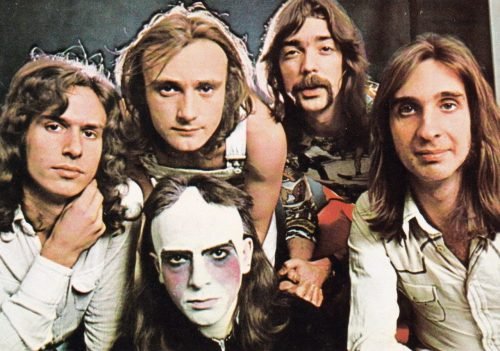In the annals of rock history, few figures stand as pivotally at the crossroads of innovation and influence as Peter Gabriel. As a founding member of Genesis, Gabriel was not just the band’s lead vocalist; he was its creative soul, guiding it through its formative years with a mix of theatrical flair and musical ingenuity. Under his tenure, Genesis transformed from an obscure school band into one of the pillars of the progressive rock movement, renowned for their complex compositions, elaborate storytelling, and live performances that were nothing short of theatrical art.
Gabriel’s tenure with Genesis during the late 1960s and early 1970s was marked by a series of groundbreaking albums that pushed the boundaries of rock music. With a voice that could convey profound emotion and a penchant for narratives filled with surreal characters and mythological overtones, Gabriel helped Genesis to craft songs that were as much a journey as they were musical compositions. His elaborate stage costumes and the vivid stories he wove on stage brought the band’s music to life, setting a standard for live performances in the rock genre.
A decision that changed the future of Progressive Rock
Yet, in 1975, at the peak of the band’s creative powers, Peter Gabriel made the unexpected decision to leave Genesis. This departure was not just a turning point for Gabriel and the band, but also a moment of significant change for the progressive rock genre and the music industry at large. It signaled the end of an era for Genesis, marking the conclusion of their most experimental phase and prompting a shift towards a more mainstream sound. For the music world, Gabriel’s exit underscored the impermanence of band lineups and the potential for remarkable solo careers emerging from the ashes of collective endeavors.
The significance of Gabriel’s departure cannot be overstated. It raised questions about the future of Genesis and how they would evolve without their leading visionary. Moreover, it set the stage for Gabriel’s solo career, which would see him explore new musical landscapes and become a pioneer in the fusion of world music with pop and rock, further influencing the industry’s direction. This moment of transition not only highlighted the fragility of artistic partnerships but also the boundless opportunities that awaited those brave enough to pursue their individual artistic path.
Genesis Before the Split
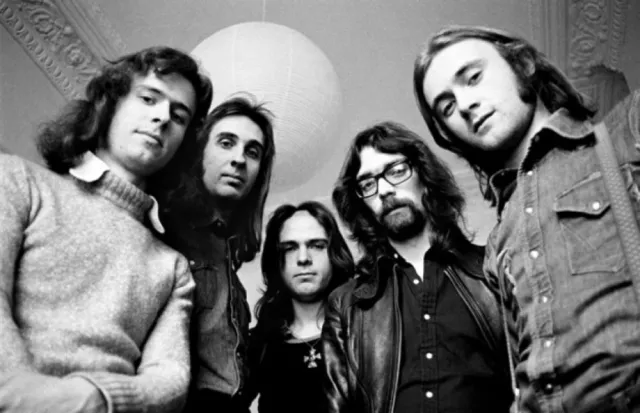
Genesis’s journey from a fledgling school band to prog rock titans is a testament to their innovative spirit, a quality much attributed to Peter Gabriel’s artistic vision and leadership. Formed at Charterhouse School in Surrey, England, in the late 1960s, Genesis initially struggled to find their footing in the UK’s vibrant music scene. It wasn’t until Peter Gabriel assumed the role of lead vocalist and flautist that the band began to carve out its unique identity, marrying complex musical arrangements with elaborate lyrical narratives.
The bands evolution under Gabriel
Gabriel’s influence on Genesis’s early sound was profound. His penchant for storytelling, infused with mythical themes and personal introspections, became the backbone of the band’s lyrical content. Albums like “Trespass” (1970) and “Nursery Cryme” (1971) saw Genesis dipping their toes into the waters of progressive rock, a genre characterized by its departure from the standard verse-chorus structures of pop music in favor of more ambitious, often thematic compositions. However, it was with “Foxtrot” (1972) and the epic track “Supper’s Ready” that Genesis firmly established themselves as a force to be reckoned with in the prog rock scene. The album showcased the band’s ability to blend complex musical motifs with Gabriel’s narrative prowess, telling a story that spanned across seven distinct sections.
The band’s evolution under Gabriel reached a zenith with “The Lamb Lies Down on Broadway” (1974), a double album that was both a critical and commercial success. This concept album, revolving around the surreal journey of its protagonist, Rael, through a bizarre version of New York City, was ambitious in its scope and storytelling. Gabriel’s contributions were central to the album’s conception, writing the majority of the lyrics and driving the narrative forward with his performances, both in the studio and on stage.
Gabriel’s theatricality
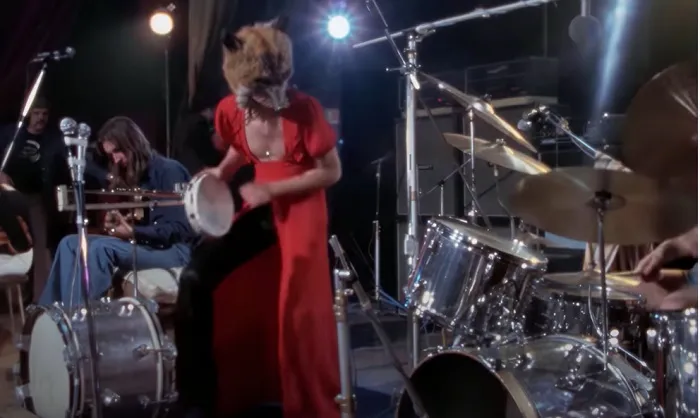
The creative dynamics within Genesis were equally influenced by Gabriel’s theatricality. His use of elaborate costumes and props during live shows added a visual dimension to the band’s performances, transforming concerts into immersive experiences. This approach not only set Genesis apart from their contemporaries but also raised the bar for live performances in the rock genre. Gabriel’s characters, such as the flower-masked “Watcher of the Skies” and the fox-headed figure from “Foxtrot,” became iconic symbols of Genesis’s live shows, embodying the fusion of music and theatre.
However, this period of intense creativity and innovation was not without its challenges. The ambitious nature of their projects, coupled with Gabriel’s dominant role in the band’s direction, occasionally led to tensions among the members. Despite these challenges, Genesis’s output during Gabriel’s tenure remains a high watermark in the progressive rock genre, illustrating a band unafraid to push boundaries and explore new artistic territories.
The Road to Departure
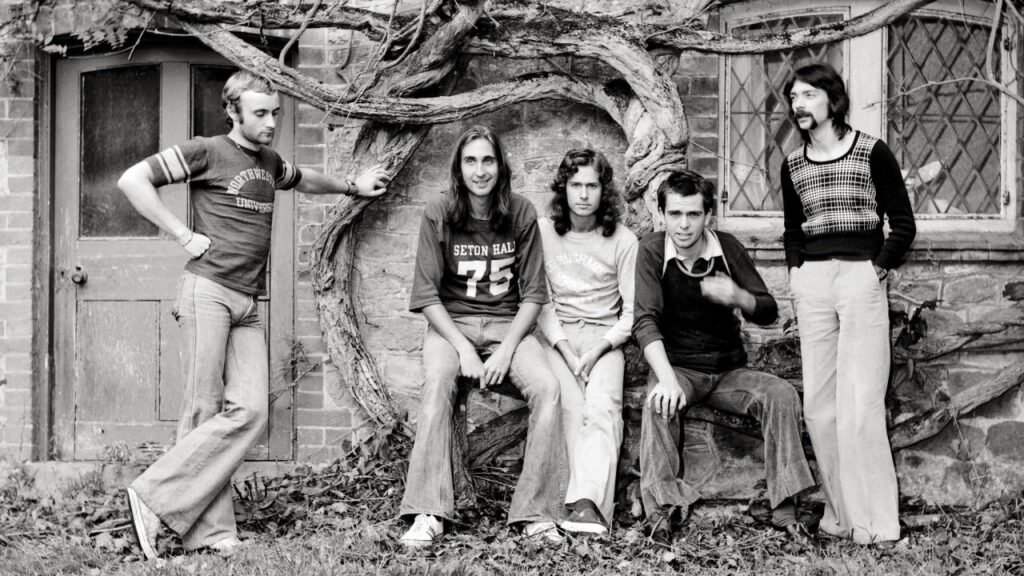
Peter Gabriel’s departure from Genesis in 1975 was not an abrupt decision but rather the culmination of various factors that had been simmering beneath the surface for some time. These factors ranged from personal to creative and professional challenges, each contributing to Gabriel’s eventual exit from the band.
‘The Lamb Lies Down on Broadway’ a pivotal moment
One of the primary catalysts for Gabriel’s departure was the intense recording process of “The Lamb Lies Down on Broadway,” Genesis’s ambitious double album released in 1974. The project was a Herculean undertaking, with Gabriel spearheading its conceptual and lyrical direction. The album’s narrative complexity and the pressure to match its story with equally compelling music placed immense strain on the band’s dynamics. Gabriel’s insistence on controlling the album’s thematic content led to tensions within Genesis, as other members felt marginalized and frustrated by the lack of collaborative creativity. The recording sessions were marred by these creative differences, foreshadowing the challenges the band would face in staying together.
Beyond the internal dynamics of the band, personal reasons also played a significant role in Gabriel’s decision to leave. During the recording of “The Lamb Lies Down on Broadway,” Gabriel was dealing with significant personal upheaval. His wife was undergoing a difficult pregnancy, which led Gabriel to question his priorities and the balance between his career and family life. This period of introspection made the demands of being in a band, especially one as ambitious and touring-intensive as Genesis, increasingly untenable for Gabriel.
Gabriel’s personal ambitions
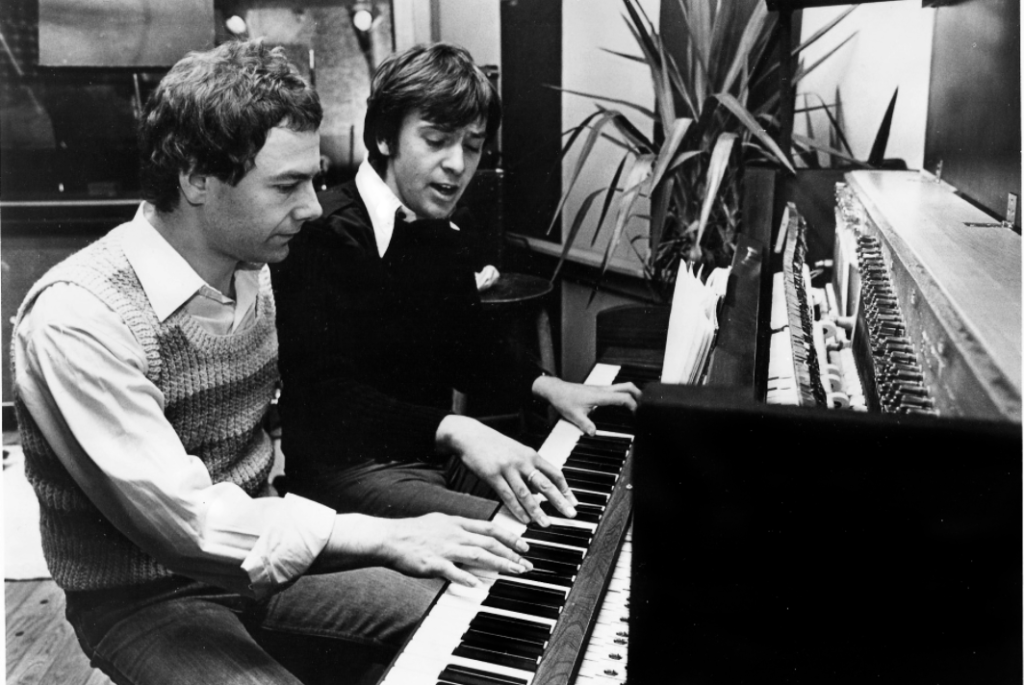
Furthermore, Gabriel’s growing interest in other artistic and personal endeavors began to pull him away from the band. He was becoming increasingly fascinated with exploring new music styles, storytelling forms, and production techniques. Gabriel was also drawn to the burgeoning field of music video production and the potential of incorporating visual arts into music, an interest that would later define much of his solo career. These expanding artistic horizons made the confines of a single band, especially one with established expectations and creative processes, seem limiting.
The release of “The Lamb Lies Down on Broadway” and the subsequent tour proved to be both a pinnacle and a breaking point for Genesis with Gabriel. The tour was a critical and commercial success, showcasing the band’s musical and theatrical prowess. Yet, it also underscored the unsustainable nature of the band’s current trajectory, at least for Gabriel. The physical and emotional toll of the tour, coupled with the creative tensions and personal issues, solidified his decision to part ways with Genesis.
In essence, Gabriel’s departure was the result of a complex interplay of factors that had been developing over several years. His exit marked a significant turning point for both himself and Genesis, setting the stage for new beginnings and the divergent paths their careers would take.
The Announcement and Immediate Aftermath
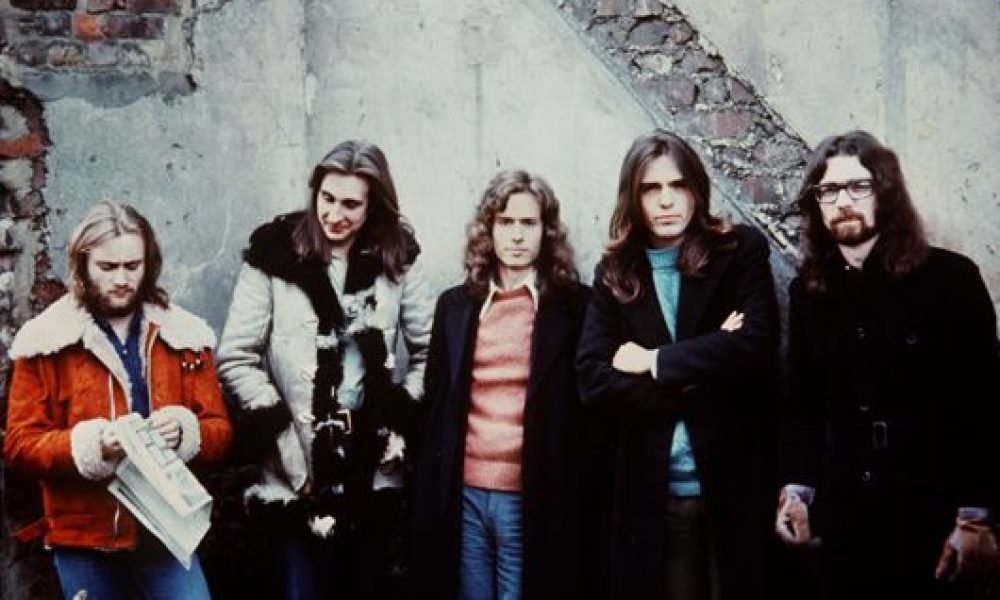
The announcement of Peter Gabriel’s departure from Genesis in August 1975 sent ripples through the music world, marking the end of an era for the band and its fans. Gabriel’s decision to leave was communicated through a poetic and somewhat enigmatic statement, famously dubbed “Out, Angels Out” by the press. In it, Gabriel spoke of the weariness with the machinery of the music industry and a desire to explore different aspects of his creativity and personal life. The statement reflected Gabriel’s complex relationship with fame and his bandmates, veiled in the metaphorical language that characterized much of his work with Genesis.
The reaction to Gabriel’s departure was mixed, both within the band and among the public. Internally, the remaining members of Genesis were initially shocked and concerned about the future of the band. Gabriel had been a central figure, not just as the lead vocalist but as the face of Genesis’s theatrical live performances. There was a real fear that without him, the band might not be able to continue. However, this uncertainty eventually gave way to a determination to prove Genesis could survive and thrive post-Gabriel.
Externally, the media and fans were caught off guard by the announcement. Many media outlets speculated on the reasons behind the departure and its impact on the future of Genesis and progressive rock. The press pondered whether Genesis could maintain their creative and commercial success without Gabriel’s distinctive voice and vision. Meanwhile, fan reactions ranged from disappointment and sadness to curiosity about what both Gabriel and Genesis would do next. For a fanbase accustomed to the band’s stable lineup and groundbreaking work, this was a moment of significant uncertainty.
New directions
In the immediate aftermath of Gabriel’s departure, Genesis faced the daunting task of finding a new lead vocalist. The band auditioned several singers, searching for someone who could fill Gabriel’s shoes. This period of uncertainty tested the band’s resilience and unity, pushing them to reconsider their musical direction and group dynamics. Ultimately, drummer Phil Collins, who had been providing backing vocals, stepped into the role of lead vocalist, marking the beginning of a new chapter for Genesis.
For Gabriel, leaving Genesis meant the freedom to explore new artistic horizons without the constraints of the band’s expectations. His first steps post-departure involved a period of reflection and experimentation. Gabriel took time to focus on his family, recover from the strains of touring, and plot his next musical moves. This period of exploration eventually led to the release of his debut solo album in 1977, titled “Peter Gabriel” (often referred to as “Car”), which showcased a broader range of musical influences and the beginning of Gabriel’s exploration into the visual presentation of his music through innovative music videos.
The announcement of Gabriel’s departure and the immediate aftermath were pivotal moments for both the artist and Genesis. They signaled not just the end of a chapter but the start of new journeys for both parties. For Genesis, it meant reinventing themselves and finding success in a new musical direction. For Gabriel, it was the opportunity to establish himself as a solo artist and pioneer in the music video and world music arenas, paths that would define his career henceforth.
Genesis Post-Gabriel
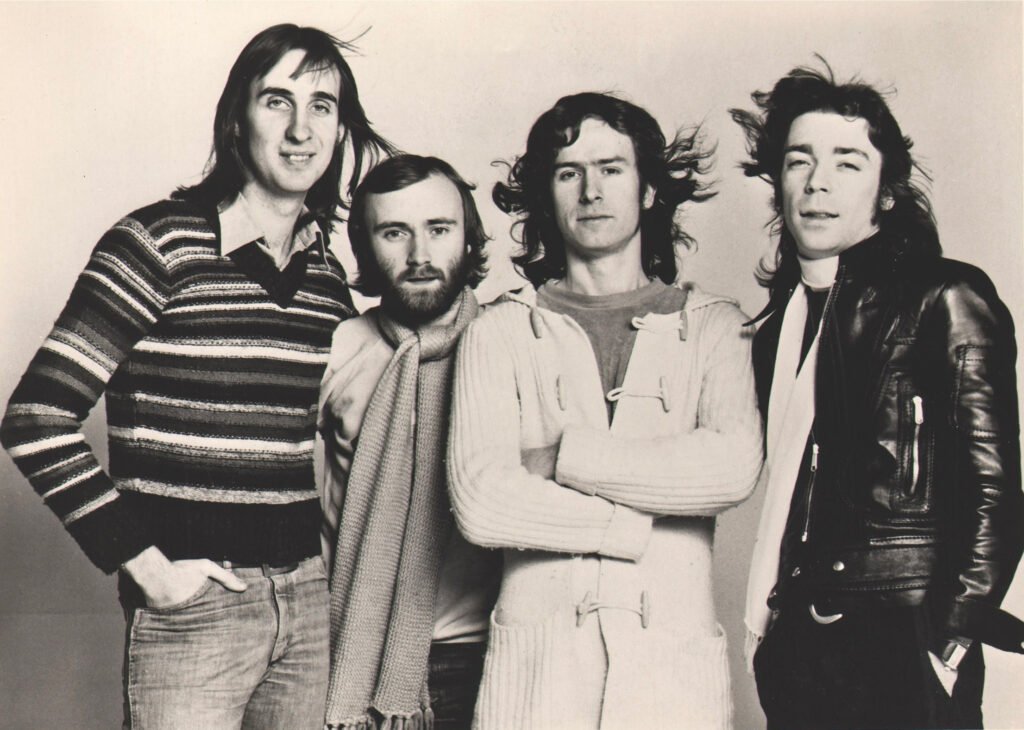
The departure of Peter Gabriel in 1975 left Genesis at a crossroads, facing the daunting task of not only replacing their iconic frontman but also defining what the band would become in his absence. The transition period that followed was a critical juncture, leading to significant changes in the band’s lineup, sound, and commercial approach.
The Search for a New Lead Vocalist
Initially, Genesis embarked on an extensive search for a new lead vocalist, auditioning hundreds of candidates in the hope of finding someone who could fill Gabriel’s shoes. This period was marked by uncertainty, with the band members exploring various options and considering the future direction of Genesis. Despite the talent of many auditionees, none seemed to fit the unique blend of musicality and stage presence that the band was looking for.
It was during this search that Phil Collins, the band’s drummer and a vocalist in his own right, began to experiment with singing some of the band’s material. Collins had previously provided backing vocals and even led a few songs, demonstrating a versatile and expressive voice. After much deliberation and trial, the band made the decisive move to promote Collins from behind the drum kit to the forefront as the band’s new lead vocalist. This decision not only filled the gap left by Gabriel but also set the stage for a new era in Genesis’s history.
Evolution of Sound and Commercial Success
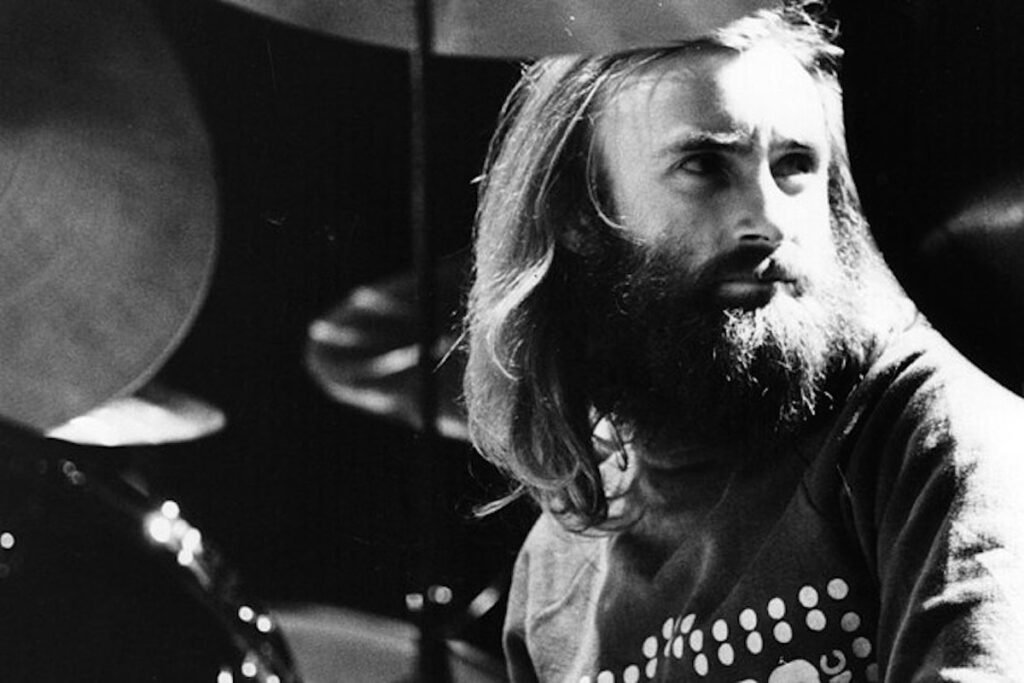
With Collins at the helm, Genesis underwent a significant transformation in their musical direction. The albums that followed Gabriel’s departure, starting with “A Trick of the Tail” (1976) and “Wind & Wuthering” (1976), saw the band navigating a delicate balance between their progressive rock roots and a more accessible, melodic rock sound. These albums were well-received, dispelling doubts about the band’s viability post-Gabriel and establishing Collins as a capable and charismatic frontman.
The transition to a more commercially viable sound was gradual but deliberate. By the early 1980s, with albums like “Duke” (1980) and “Abacab” (1981), Genesis had fully embraced a more streamlined, pop-oriented approach. This shift was marked by an increase in synthesizers, shorter song formats, and more straightforward lyrical themes. The band’s commercial success soared, culminating in the 1986 album “Invisible Touch,” which became their best-selling album. Hits like “Invisible Touch,” “Land of Confusion,” and “Tonight, Tonight, Tonight” solidified Genesis’s place in the pantheon of pop and rock music, reaching audiences far beyond their original prog rock fan base.
Legacy and Influence Post-Split
The post-Gabriel era of Genesis is a testament to the band’s ability to evolve and adapt to changing musical landscapes. By successfully transitioning from progressive rock innovators to mainstream pop-rock superstars, Genesis demonstrated a remarkable flexibility and resilience. This evolution broadened their appeal and helped secure their legacy as one of the most successful bands of the 1980s.
Critically, the band’s journey from prog rock to pop has been a subject of debate among fans and critics. While some purists lamented the shift away from the complex, narrative-driven compositions of the Gabriel era, others celebrated the band’s broader commercial success and the new musical directions they explored.
In retrospect, Genesis’s post-Gabriel period is an integral part of their rich tapestry, contributing significantly to their overall legacy. The band’s ability to reinvent itself, coupled with Collins’s emergence as a frontman and successful solo artist, speaks to the dynamism and creativity at the heart of Genesis. Their influence on both progressive rock and pop music endures, showcasing the band’s versatility and enduring appeal across different musical eras and tastes.
Peter Gabriel’s Solo Career
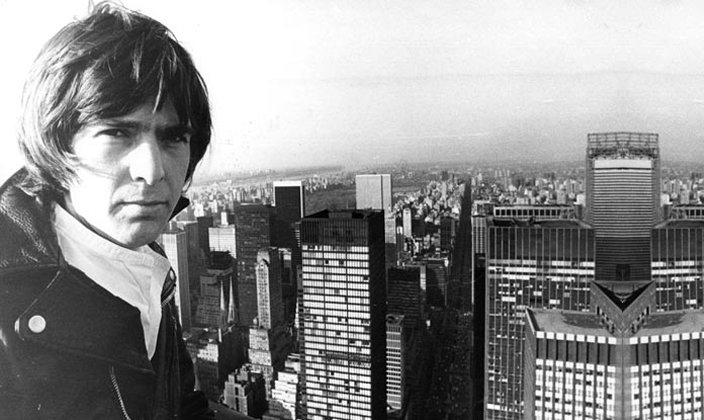
Peter Gabriel’s departure from Genesis in 1975 marked not an end but the beginning of an illustrious solo career, characterized by musical innovation, critical acclaim, and a profound impact on the music industry at large. Gabriel’s journey as a solo artist has been defined by his willingness to explore new territories, both musically and thematically, establishing him as one of the most influential figures in contemporary music.
Artistic Exploration and Sound Development
Gabriel’s solo debut, the self-titled album “Peter Gabriel” (1977), commonly referred to as “Car” due to its cover artwork, signaled the start of his exploration into new sonic landscapes. Distinct from the progressive rock of Genesis, this album and its successors, “Scratch” (1978), “Melt” (1980), and “Security” (1982), also self-titled but often identified by their cover images, showcased a blend of rock, electronic, and world music influences. Gabriel’s early solo work was marked by a willingness to experiment with innovative recording techniques, unconventional instruments, and complex rhythms. “Melt,” in particular, featured the hit “Biko,” a poignant tribute to the murdered anti-apartheid activist Steve Biko, highlighting Gabriel’s growing interest in political and social issues.
Commercial and Critical Successes
Gabriel’s commercial breakthrough came with the release of “So” in 1986. The album was a massive success, propelled by hit singles such as “Sledgehammer,” “Big Time,” and the introspective “In Your Eyes.” “Sledgehammer” in particular showcased Gabriel’s fascination with innovative music video production, featuring groundbreaking stop-motion animation that played heavily on MTV and helped cement the song’s popularity. “So” not only achieved commercial success but also garnered critical acclaim, cementing Gabriel’s status as a solo artist capable of merging artistic depth with mainstream appeal.
Impact on Music Videos, World Music, and Humanitarian Efforts

Gabriel’s influence extended beyond his music to his pioneering work in the realm of music videos. His innovative approach to the medium, especially evident in the visually captivating video for “Sledgehammer,” played a significant role in the evolution of music video production, emphasizing its potential as an art form.
Moreover, Gabriel’s interest in world music led to the creation of the Real World Studios and the record label Real World Records, both aimed at promoting musicians from around the globe. His passion for bringing diverse musical traditions to a wider audience was further exemplified by the WOMAD (World of Music, Arts and Dance) festivals, which he co-founded. WOMAD played a crucial role in popularizing world music and fostering cross-cultural musical collaborations.
Gabriel’s commitment to social and humanitarian causes has been another hallmark of his career. Beyond “Biko,” his work has consistently addressed human rights issues, most notably through his involvement with Amnesty International and the creation of the human rights organization Witness. This organization utilizes technology and video to expose human rights abuses, underscoring Gabriel’s belief in the power of music and media to effect positive change.
Peter Gabriel’s solo career is a testament to his enduring influence on the music industry. Through his artistic exploration, commercial successes, and innovative contributions to music videos and world music, Gabriel has not only crafted an enviable discography but has also used his platform to advocate for humanitarian causes. His journey from the frontman of Genesis to a solo artist and activist reflects a constant evolution, driven by a desire to push boundaries and make a meaningful impact on the world.
Legacy and Reconciliation
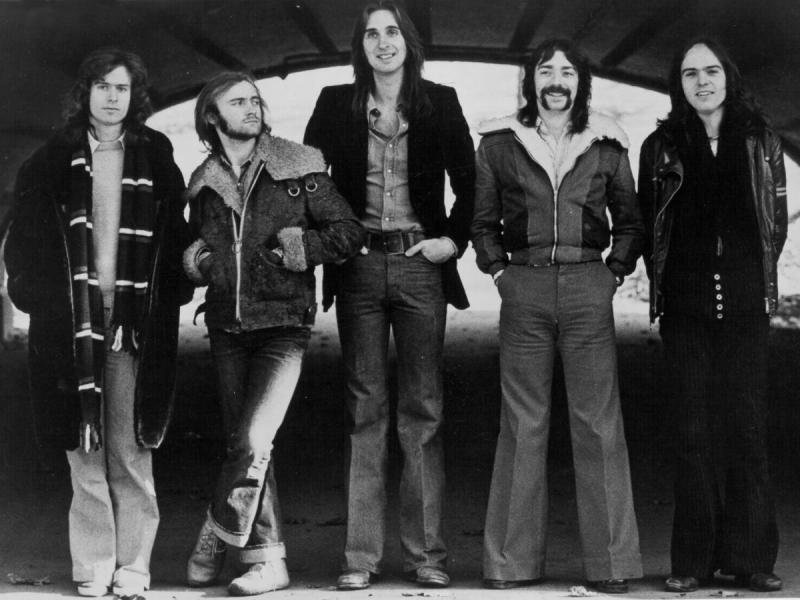
Peter Gabriel’s departure from Genesis in 1975 and his subsequent solo career marked a defining moment in the history of contemporary music, setting the stage for the evolution of both the artist and the band in ways that neither could have anticipated at the time. The split, while initially seen as a potential setback for both parties, ultimately led to a flourishing of creative output that has left a lasting impact on the music industry and their legacies.
Respective Legacies
For Genesis, Gabriel’s departure was a catalyst for reinvention. The band transitioned from their progressive rock roots to a more mainstream pop-rock sound, achieving commercial success on a scale that was unprecedented for them. Albums like “Invisible Touch” and “We Can’t Dance” brought Genesis to the forefront of the 1980s and early 1990s pop music scene, garnering a new fanbase and critical acclaim. This period of the band’s history would likely have taken a different path had Gabriel remained, potentially missing out on the broader commercial appeal they later achieved.
Conversely, Gabriel’s solo career allowed him to explore a wide range of musical styles, from experimental rock to world music, establishing him as a pioneering artist in the music video realm and a champion of world music and human rights. His work has been marked by a willingness to experiment and a commitment to social activism, aspects of his artistry that were present during his time with Genesis but fully realized in his solo projects.
Reunion and Collaboration
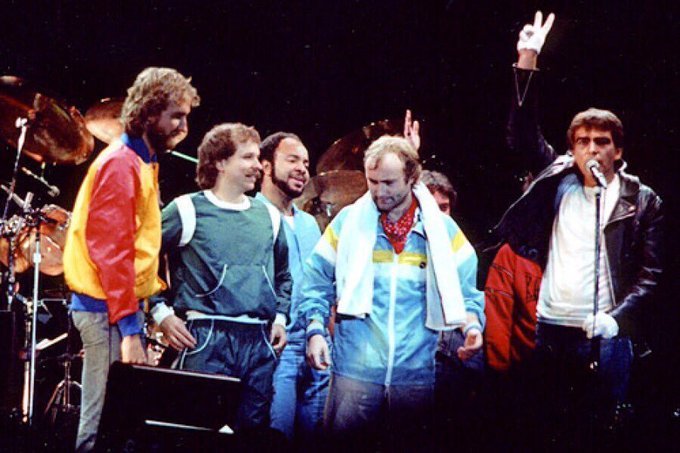
Despite the separation, members of Genesis and Gabriel have shared moments of reunion and collaboration over the years, signaling a reconciliation of sorts and a mutual respect for each other’s contributions to music. Notably, in 1982, Gabriel reunited with his former bandmates for a one-off live performance at the Six of the Best concert, a charity event to raise funds for Gabriel’s WOMAD festival. This event, although brief, was a significant gesture, showcasing the enduring bond between Gabriel and the members of Genesis.
Interviews and public statements made by both parties in the years following the split have often reflected on their time together with fondness and respect, acknowledging the creative differences that led to their separation while also recognizing the invaluable contributions each made to the other’s success. These interactions underscore the complex dynamics of their relationship, marked by both creative tension and mutual admiration.
Lasting Impact and What Might Have Been
The lasting impact of Gabriel’s tenure with Genesis is evident in the band’s continued reverence for their early work. The experimental and theatrical elements that Gabriel brought to the band have become a celebrated part of Genesis’s legacy, influencing not just progressive rock but also the broader music landscape.
Speculating on what might have been different had Gabriel stayed with Genesis invites intriguing possibilities. Perhaps the band would have continued down a more experimental path, further cementing their status as progressive rock icons. Conversely, Gabriel’s solo explorations and humanitarian work might never have reached the same breadth and impact.
Ultimately, Gabriel’s departure from Genesis can be seen as a pivotal moment that allowed both the artist and the band to grow in ways that were unforeseeable but profoundly influential. Their separate paths have led to a rich tapestry of musical innovation and success, underscoring the idea that creative differences, while challenging, can lead to new avenues of artistic expression and legacy-building. The story of Genesis and Peter Gabriel is a testament to the unpredictable journey of music and the enduring power of evolution and reinvention in the face of change.
